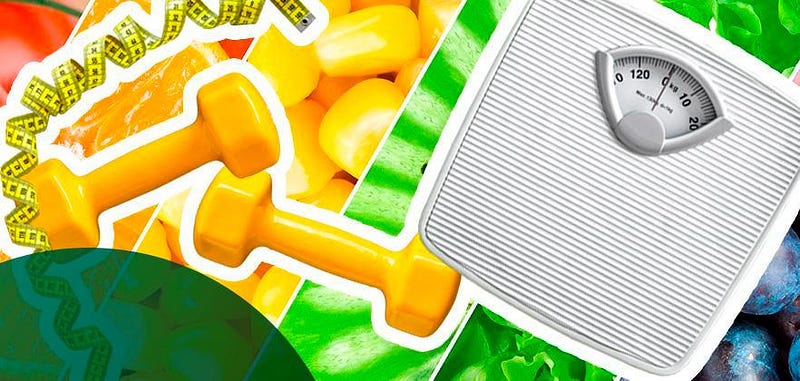You don’t need to go hungry or follow a “crazy diet” to lose weight. See how to lose weight healthily following dietary reeducation.

Are your clothes no longer fit? Aren’t you happy with your reflection in the mirror? Or did the doctor warn that if you don’t take action, your blood pressure will continue to rise and you are at risk of developing diabetes? Whatever the reason for wanting to lose weight, you need to know how to lose weight healthily.
Being satisfied with your own image and feeling good when wearing a special outfit are important things that do our self-esteem very well.
However, more than an aesthetic issue, being within a healthy weight range is one of the main measures to prevent a series of diseases, such as diabetes, hypertension, high cholesterol, cardiovascular problems, and even some types of cancer.
1. Forget crazy diets
Just log into Instagram or take a look at the magazines that are close to the supermarket checkout and you will find a multitude of “miracle diets” that promise to speed up weight loss. Be it the moon, juice, lemon, or any other diet, know that these weight loss programs are not at all sustainable.
You may even lose a few pounds in the first few weeks; however, as they are very restrictive, the body will soon miss the necessary nutrients and go into “economy mode”, that is, your body will store everything it can and the pounds will end up coming back.
2. Get started now
Winter is approaching and, therefore, do you find it easier to lose weight near summer? Nothing like that! The more time passes, the more difficult it will be to eliminate excess weight.
In addition, when we wait for “Monday” or any other date to start, the tendency is to want to “enjoy” the time remaining until then, which makes us consume far more calories than we normally would.
Remember that you don’t have to “say goodbye to sweets” or any other goodies, as a healthy weight loss diet allows you to consume a dessert from time to time.
3. Don’t go without eating
Skipping meals may seem like a good idea to speed up weight loss, but just do it a few times and you’ll soon discover what the damage is: in addition to being in a bad mood and feeling weak, dizzy, and headache, you’ll be starving when you finally eating and it will be arduous to control your appetite.

Therefore, the tip for healthy weight loss is to eat 5 or 6 meals a day, without exaggerating the quantities — after all, you know that you will eat again a few hours later. To do this, eat the three main meals (breakfast, lunch, and dinner) and add small snacks between them.
4. Know how to set up your meals
Losing weight does not mean going hungry, but betting on food reeducation. This means that you need to know how to combine food to provide your body with everything it needs without exaggeration.
If you have no restrictions such as lactose intolerance, celiac disease, or diabetes, your diet can follow a schedule like this:
- Breakfast: 1 fruit + 1 slice of whole-grain bread with light curd + 1 small cup of unsweetened skimmed milk;
- Morning snack: 1 fruit + 1 tablespoon of whole grains;
- Lunch: ½ dish of green leaves seasoned with lemon and olive oil + 3 tablespoons of raw or sauteed vegetables + 2 tablespoons of brown rice + ½ bean scoop + 1 chicken breast or 1 fat-free steak or 1 fillet fish (grilled);
- Afternoon snack: 1 jar of light yogurt + 1 dessert spoon of chia or flaxseed;
- Dinner: same lunch plate or 1 bowl of fat-free soup (with only one carbohydrate source) or 1 sandwich of whole wheat bread + shredded chicken breast + green leaves + light curd;
- Supper: 1 cup of light pudding or 1 cup of unsweetened tea + 3 simple whole-grain cookies.
>> CLICK HERE FOR MORE WEIGHT LOSS TIPS <<
5. Leave treats for special occasions
To lose weight in a healthy and sustainable way, your diet needs to have space for you to consume your favorite treat from time to time. Adding fruits and vegetables is essential, but there is room for an occasional slip.
If it’s your birthday, for example, you can have a slice of your favorite cake, but save on the fried snacks. If you go to a barbecue with friends, give preference to meats and salads and have just one drink of alcohol. If you go to dinner and find your favorite dessert, help yourself just once and so on.
Food reeducation is precisely knowing how to balance what we consume. So, if you have allowed yourself to “get out of line” on one occasion, remember to avoid more calorie products in the coming days.
6. Be careful with alcoholic drinks
They may look light and refreshing, but any alcohol is harmful to weight loss — including red wine, despite its reputation for being antioxidant. Thus, it is necessary to avoid its intake as much as possible.
This is because alcohol contains so-called “empty calories”, as it offers 7 calories per gram and no important nutrients for the body. Discover the energy value of the main drinks:
- Lemon caipirinha with sugar: 260 kcal in 1 cup (200 ml);
- Lemon caipirinha with sweetener: 180 kcal in 1 cup (200 ml);
- Beer: 100 kcal in 1 glass (200 ml);
- Draft beer: 180 kcal in 1 tulip (300 ml);
- Sparkling: 110 kcal in 1 bowl (125 ml);
- Mojito: 250 kcal in 1 cup (200 ml);
- Red wine: 107 kcal in 1 glass (125 ml).
7. Practice physical exercises
To lose weight, you must consume fewer calories than you expend — and the best way to increase your caloric expenditure is through physical exercise, especially aerobic exercise.
In addition to training at the gym, you can choose activities such as walking, cycling, running, dancing, swimming or any other of your choice. Just remember to consult your doctor before starting a new exercise.
8. Sleep well and reduce stress
Sleeping fewer hours than necessary or having poor quality sleep favors weight gain, as the person who does not rest at night tends to ingest more calories the next day.

In addition, it is necessary to set aside time for rest and leisure, as stress is related to high levels of cortisol, a hormone that increases appetite.
9. Seek professional guidance
Instead of trying to design a diet on your own, your best choice is to seek the guidance of a nutritionist or neurologist, who are professionals trained to assess the needs of your body and set up a dietary reeducation program compatible with your lifestyle.
Remember that obesity is a disease, which is why it must be treated.

























0 comments:
Post a Comment